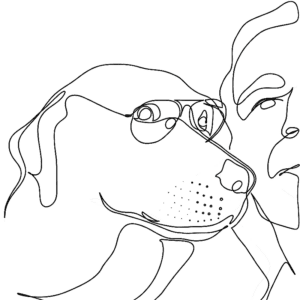By Fr. Benedict Groeschel, CFR
Come to me, all you who labor and are burdened, and I will give you rest. Take my yoke upon you and learn from me, for I am meek and humble of heart; and you will find rest for your selves. For my yoke is easy, and my burden light. (Mt 11:28-30)
Have you ever wished, after an encounter with a mean or arrogant person, that you had said something sharp in response to them, that you had been quicker with a rebuke, or gotten the better of them in the argument? Well, it was not dimwittedness that kept you from being nasty to them in turn. Believe it or not, it was the Christian virtues of meekness and humility that kept you from lowering yourself to that level. For the sake of simplicity I will treat these two virtues under the rubric of “meekness” which we can say is a virtue that bestows a certain tolerance on us with regard to the faults of others. If we are not cultivated in the art of nastiness, it really is a result of being virtuous! We may lose us points in a fight, but the virtue of meekness gains us blessings even while on this earth. The third beatitude says, “Blessed are the meek, for they will inherit the land,” (Mt 5:5) meaning that we receive blessings right now for dealing well with the faults of others.
Jesus is described in Scripture and in our Catholic devotional tradition as “Meek and Humble of Heart,” and I think that the Prophet Isaiah describes His meekness better than any other writer in the bible. For Isaiah, the future Messiah will have great care for the vulnerabilities of people: “A bruised reed he will not break, and a dimly burning wick he will not quench.” (Is 42:3) In other words, He will treat sinful people with gentleness—how needed in an extremely harsh world. I think my favorite image from Isaiah, though, is this one: “Like a shepherd he feeds his flock; in his arms he gathers the lambs / Carrying them in his bosom, leading the ewes with care.” (Is 40:11) Is there a more wonderful image of the meekness of the Lord than His carrying little lambs in His arms and walking side-by-side with pregnant mother sheep? I think not.
Yes, Jesus got angry too: all of the four Gospels show him expelling the merchants from the Temple with whip in hand and fire in His eyes, but notice that His anger is not vengeful. Apparently, no one was hurt in that incident. Jesus was re-establishing the rights of God in His own Temple, not seeking retribution for those who were doing wrong. Jesus does not prowl around on the lookout for the faults of others. If He did, we’d all be in big trouble. Even in His most emotionally-heightened state, He was still meek: He only overturned inanimate tables and drove animals away. He did not even touch the poorer merchants selling doves but only sent them away with a slight scolding. Pretty meek if you ask me.
Let’s look at meekness from a more personal angle, from our own “need” for it. Have you ever gone to Confession and had to choose between whether to go to Fr. A or Fr. B? Which priest do you choose to confess your faults to: the stiff, officious, priest with the frown on his face or the priest who has the face (or reputation) of kindness? It’s no choice at all, right? Hands down we always choose the priest who looks like he will let us off the hook. But more than anything, we choose the priest who shows in his daily life and preaching that he knows what mercy is and will remind us that God’s love is much greater than any sins we could commit. That is the effect that meekness has on other people, and as a human virtue, it is immensely attractive and trumps nastiness every time.
Most importantly, meekness is that quality of heart that avoids harshness in dealing with the faults of others. It is the attitude that puts up with others’ faults patiently, is not contentious in matters that are not essential, and even in difficult moments finds ways of being firm but not mean in dealing with others. How can we survive in this world without meekness?
Prayer
Oh “Jesus, Meek and Humble of Heart,” make our hearts like Your own and teach us to be men and women of humble dispositions in all things with all people! Let us never return insult for insult or hatred for hatred. Rather, let us strive always to be indulgent and kind with the inevitable annoyances of other people, even when we aren’t strictly required to treat them with deference, and let us know in our hearts and souls that we owe such kindness to others because we ourselves have been treated so mercifully by You who could condemn us justly for our faults and sins. You have given us an example of gentleness and humility, dear Shepherd of our souls; make our hearts meek and humble so that many souls will draw near to us and walk with us beside the path of life into the Kingdom that you have prepared for all who are meek. Amen.
[Excerpted from: Fr. Benedict Groeschel, Jesus and Mary: In Praise of their Glorious Names, Our Sunday Visitor, Inc.: Huntington, Indiana, 2012.]
